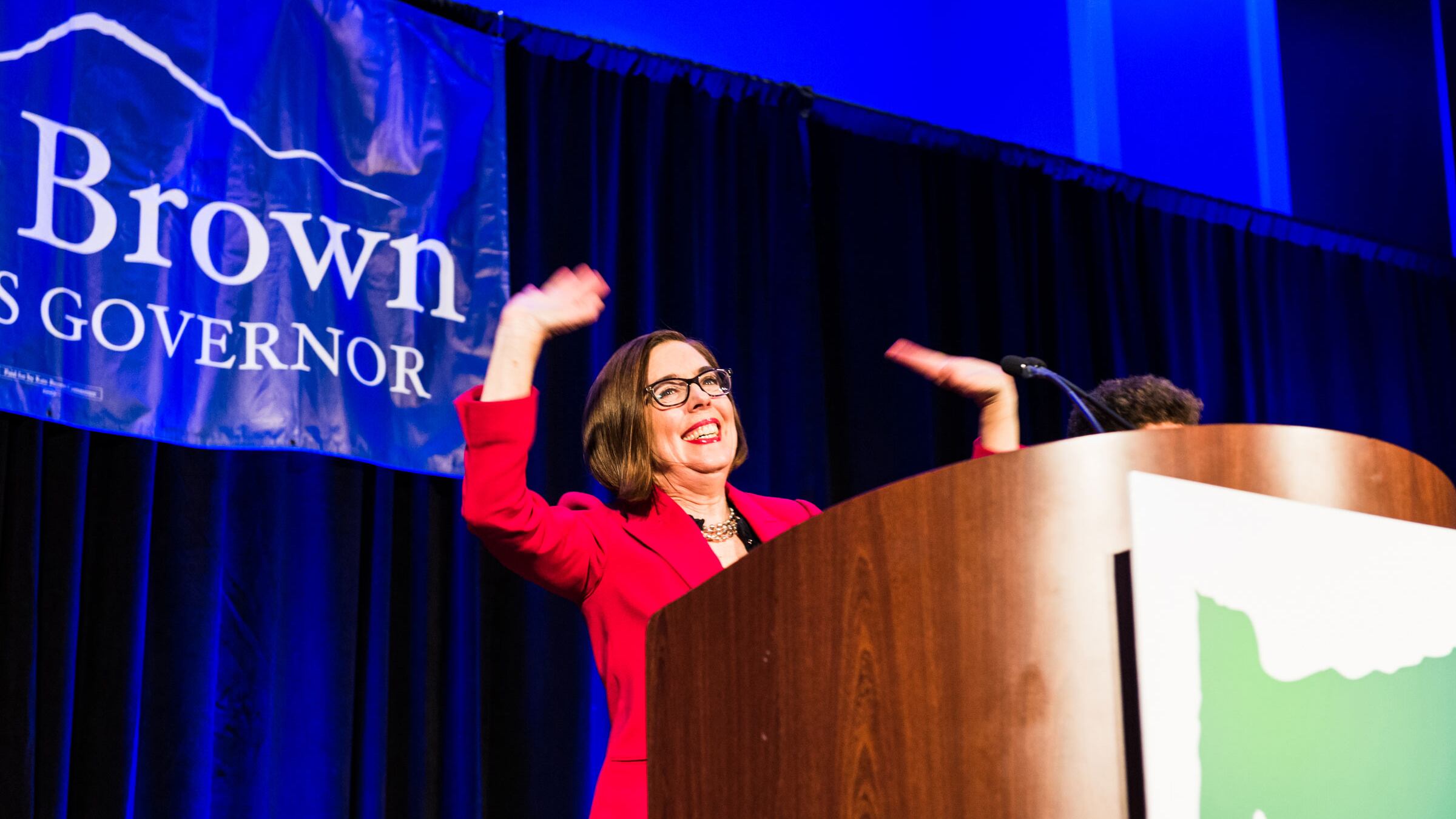Last year, Nike founder Phil Knight donated four times more toward a single political candidate than anyone else in Oregon history—yet failed to buy victory for Republican gubernatorial nominee Knute Buehler.
But Knight's $3.5 million in contributions—$1 million of it to the Republican Governors Association—sparked the state's Democrats, who control both houses of the Legislature and the executive branch, to reconsider Oregon's lack of limits on campaign donations.
The night of Gov. Kate Brown's election, she pledged to set a cap on contributions. Now lawmakers are following through.
Legislation being considered in Salem would set contribution limits, require disclosure of independent expenditures and sources of advertising, and refer a ballot measure to voters that would amend the constitution to lock that ceiling in place.
Rep. Dan Rayfield (D-Corvallis) says he believes he has the votes to pass the bills this session, which seems increasingly likely given that key political forces in Salem, including public employee unions and state Sen. Ginny Burdick (D-Portland), a leader in the Senate, are on board.
"Phil Knight changed our minds," says Ben Morris, a spokesman for the Service Employees International Union, which was part of the coalition of unions to publicly oppose limits 13 years ago, when voters approved them with Ballot Measure 47, which in turn was overturned by the Oregon Supreme Court.
Burdick echoes that sentiment: "It's past time to have reasonable campaign limits in Oregon."
"For me this has been a long journey, going back decades," says Rayfield, adding he believes he has struck a balance in the bill to win passage. "I have not seen the momentum across party lines, frankly across the nation, to implement these reforms."
The campaign limits in House Bill 2714 would remove Oregon's status as an outlier—it's currently one of only five states without any limits. But critics say the bill wouldn't completely upend the political system, including who has candidates' ears during elections, say campaign finance reform advocates.
"On the one hand, what's likely to move forward [in Salem] is really important and will be significant," says Common Cause Oregon's Kate Titus, "and there's another way it won't change anything."
That's because the limits set by HB 2714—sponsored by Rayfield (D-Corvallis)—are $2,800 for statewide elections, $1,500 for Senate campaigns and $1,000 for House races per election. Those limits seek to halt mega-donors from single-handedly bankrolling candidates and remove the influence of industry groups that spend big. But they remain beyond what an average voter could contribute.
And that probably means candidates won't change the methods they employ when seeking money from the state's wealthy donors. In other words, it could weed out mega-donors, but it won't fundamentally realign who candidates are listening to. (Also, the bill would allow unions and other membership organizations a way to pool members' donations: They could create small-donor committees that accept capped individual donations of $250 a year.)
State Sen. Jeff Golden (D-Ashland), who declined contributions from political action committees during his campaign last year, is among those pushing for something more radical.
"One of the biggest reasons people don't trust the system is undue influence of big money," says Golden. "We have to restore faith and confidence in the system."
Golden argues the Legislature needs to place limits on how much party and caucus political action committees may contribute to candidates, which is not restricted by HB 2714, to convince average voters there's been real reform. (The party and caucus committees are limited to donations from individuals of $2,800 a year, but not limited in what they can receive from some other PACs.)
With Senate leaders on board, the fight in Salem may turn on the question of whether HB 2714 and two other bills, HB 2716 and HB 2983, would close enough loopholes to meaningfully limit the role of money in Oregon politics.
Advocates are alarmed by loopholes—the large number of party committees as well as unlimited contributions from some political action committees—that may allow mega-donors to funnel money to candidates.
The Legislature is acting after advocates passed stricter campaign limits in Multnomah County in 2016 and Portland in 2018.
"There's tremendous momentum to get big money out of politics led by our Multnomah County and Portland measures," says lawyer Jason Kafoury, a spokesman for the Honest Elections Coalition, which passed the two local measures. "Our Honest Elections coalition has worked hard to try to improve the bills. We think there are large loopholes that need to be fixed before we can support them."
